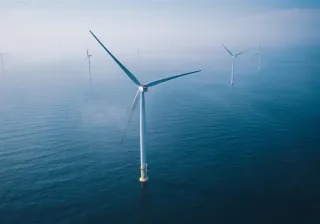Synthetic biology is increasingly serving humanity for instance by accelerating the development of new medical treatments and by assisting in the combating of climate change. The Synbio Powerhouse ecosystem managed by VTT offers the key to success.
Synthetic biology combines the genius of nature with the excellence of engineering: the technology involves programming cells for a specific kind of production and reaction.
“The coronavirus pandemic is a typical example of a phenomenon that can be addressed through synthetic biology. Climate change, replacing fossil fuels with synthetic fuels and recycling are major global challenges with which synthetic biology can help,” says Co-Creation Manager Tuula Palmén at VTT.
Palmén is responsible for the development of the Synbio Powerhouse, a synthetic biology ecosystem. This ecosystem fosters expertise in synthetic biology and the introduction of its methods in Finland as well as supports the turning of expertise and innovations into business. By trying to address challenges that concern the entire planet and humanity as a whole, the ecosystem is in with the strategy of the Ministry of Economic Affairs and Employment and of VTT.
“There is a clear need for synthetic biology. Not just for research projects but also for integrating into a variety of commercial solutions,” says Palmén.
The services of the ecosystem includes a synthetic biology laboratory where anyone can familiarise themselves with the technology.
“We also have plans to set up a laboratory facility where startup enterprises can engage in practical R&D and a synthetic biology growth engine to drive commercialisation, for instance.”
From ideas to concrete solutions
Synbio Powerhouse has proven its value in its very first year of operations. Thanks to international cooperation, development and marketing needs are now being addressed in Finland.
As an example, new business operations for the textile industry are being sought through a startup enterprise named Coveross.
“This is about a large global value chain that can make the textile industry more sustainable for the environment and for business by adding new technologies to the mix,” says Palmén.
The purpose of Coveross technology is to create functional fibres and textiles, i.e. materials that will repel UV radiation, heat, microbes, humidity, etc.
“Further development of the technology is being pursued in collaboration with Synbio Powerhouse.”
In our article Japanese Coveross® innovation goes Global via Finland Jarkko Jussila, Chairman of the Board of Coveross, describes the company and the development of functional fibres and textiles. The company is pursuing development in textiles based in Finland, working with Synbio Powerhouse to explore how the desired functionalities can be achieved in textile fibres through means of synthetic biology and biotechnology, in keeping with sustainable development.
Extensive exploitation to come
Several branches of industry are already applying synthetic biology and basic biotechnology, for instance in advanced cancer treatments and in pharmaceuticals, a simple example being the production of insulin. Industrial enzymes are also being increasingly used in various sectors, such as the forest industry and the chemical industry. Yet extensive exploitation is still to come.
“Climate change and the limited availability of natural resources are paving the way for the bioeconomy and the circular economy, which creates a market-driven need for change in exploiting the potential of synthetic biology. There is a growing need in medicine too,” says Palmén.
There are signs, like increasing investments, arising from the market anticipating that synthetic biology will be significantly involved in commercial solutions within the next decade.
“We should remember, however, that production development cycles in high tech tend to take a long time and require major investments,” she adds.
Synbio Powerhouse: concrete business and new enterprises
There are currently some 30 enterprises at the innovation and development core of the Synbio Powerhouse ecosystem, including enterprises in the forestry, energy, biotech, pharmaceutical and chemical industries.
Palmén emphasises that the strength of the ecosystem is in its functional balance. Rapid advancements in the field require all partners in the ecosystem to be active and willing to collaborate: capital investors, startup enterprises, industry and research bodies. This must be taken into account in the development of the ecosystem. It is not enough for one participant to be strong; all parties must improve and work together.
“If no ideas happen, then not much else will happen either. On the other hand, if we do not manage to involve large companies, we will affect the speed and the scale of commercialisation scale.”
Yet Synbio Powerhouse is doing well, because it has already fostered concrete business operations and new companies established in Finland. But there is still work to be done to make capital investors more familiar with the field and to get them to understand its importance. This requires startup enterprises worthy of funding and good research ideas.
“The problem in Finland and, as I understand it, even in the USA is that investors do not enough understand this field. Awareness is increasing, however: capital investment in startup enterprises in the field doubled in 2017–2018 in US.
New investment for capital investors
Synbio Powerhouse organised Finland’s first synthetic biology pitch event for capital investors last June. The event featured startup enterprises already in existence and in the process of being set up and showcased investment opportunities in the field.
The next event for capital investors is planned for September 2020.
“Its purpose is to show to investors what synthetic biology is, what is happening on its markets and what the investment potential is.”








